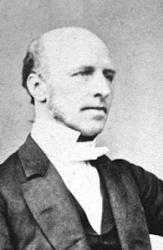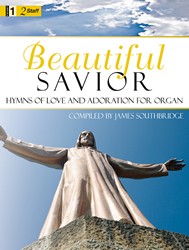Author: Thomas R. Birks

Birks, Thomas Rawson, M.A., b. Sept. 1810, and educated at Trinity College, Cambridge (B.A. 1834, M.A. 1837), of which he subsequently became a Fellow. Having taken Holy Orders in 1837, he became Rector of Kelshall, Herts, 1844; Vicar of Holy Trinity, Cambridge, 1866; Hon. Canon of Ely Cathedral, 1871; and Professor of Moral Philosophy, Cambridge, 1872. He d. at Cambridge, July 21, 1883. His works, to the number of 25, include Biblical, Astronomical, Scientific, Prophetic, and other subjects. He also wrote the Memoirs of the Rev. E Bickersteth (his father-in-law), 2 vols., 1851. His hymns appeared in Bickersteth's Christian Psalmody; 1833; and, together with Versions of the Psalms, in his Companion Psalter, 1874. They number upwards of 100…
Go to person page >

 My Starred Hymns
My Starred Hymns







